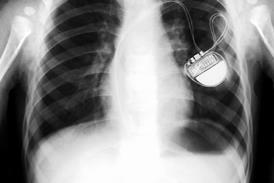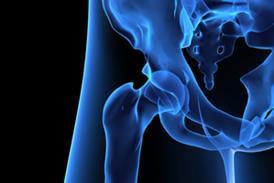The benefits of reform will be maximised if CCGs and local area teams are allowed to work together on commissioning GP services, argues Paul Cook

Clinical commissioning groups are having to jump through many hoops of authorisation
Over the last couple of months, I have been particularly struck by two conversations that suggest to me while clinical commissioning groups are jumping through the multiple hoops of authorisation, there is an altogether bigger challenge left on the backburner. That challenge is the commissioning of primary care, specifically GP services.
We leave the issue bubbling away at our peril.
The first conversation was at a meeting of clinical leaders from across Derbyshire, my local health community. We listened to presentations on integrated care and the GP commissioners in the room were very focused on how we would expect acute trust and community providers to change in order to deliver it.
‘A consultant rheumatologist told me that patients phoned him to bring forward appointments in clinic as this was easier than getting to see their GP. This is a shocking indictment of the level of services provided in some GP practices’
There was discussion about new contracting methods creating interdependence between providers, but it was actually the medical director of the ambulance trust who asked the most pertinent question of the evening: “So how are you going to get GPs contracted to deliver their part of this pathway?”
Shocking indictment
The second conversation was with a consultant rheumatologist. He told me that patients phoned his secretary to bring forward appointments in clinic as this was easier than getting to see their GP. Every acute hospital has stories of patients inappropriately attending accident and emergency departments for similar reasons. This is a shocking indictment of the level of services provided in some GP practices.
So while CCGs across the country are grappling with designing better pathways of care and how to commission secondary care and community services to provide them, there are substantial numbers of people who do not consider general practice as the starting point for those pathways.
This undermines the efforts of CCGs to deliver challenging quality, innovation, productivity and prevention targets. Yet the commissioning of GP services is not in their remit but falls to the NHS Commissioning Board.
It is only right and proper this is the case as the potential for conflicts of interest from any other model is enormous. But the local area teams of the board are relatively small units covering extensive areas with a large mandate.
While they may have the contracts, all the soft data and intelligence about variations between GP practices is held by the CCGs. Work is already in progress to produce a national benchmarking tool with multiple indicators and proxies of quality. While this may produce some form of ranking, it can only ever be a rough guide.
New relationship
The challenge then is to take the standardised national dataset when it arrives and marry this with the wealth of local data already being collated by the more imaginative CCGs that have recognised reform of primary care is a cornerstone of delivering on the new agenda. The local area teams must then be allowed to develop a mutually supportive partnership with CCGs, working together to nurture all that is good in local practices and sharing best practice.
The medical leads for the local area teams have now been appointed and are, I imagine, undertaking a stocktake of the people and resources they can draw on. There is at least one major still unanswered question that is fundamental to the successful transformation of general practice: how will the hierarchical relationships be managed?
‘There are lots of GP leaders who could get so frustrated they walk away back to their practices’
History suggests NHS management has always been based on a top-down, parent-child type of relationship, with liberal use of the stick as a motivational tool. I have been on the receiving end of non-negotiable demands for responses from strategic health authorities with ridiculous timescales. I have seen performance review processes more reminiscent of playground bullying than interactions between professionals.
Keeping GPs engaged
I firmly believe we need a new, more mature type of managerial relationship between the commissioning board and CCGs based on shared responsibility and partnership to maximise the gain from general practice reform. We GPs can be a stroppy, recalcitrant bunch and there is already pressure on the GP workforce from low morale, an increasing workload and change fatigue.
The difficult balance to strike is one of changing the core offer from general practice while retaining the engagement of the workforce. The latter is fundamental to the success of CCG-led commissioning. The area team medical leaders must be seen to be in partnership with the clinical leaders of CCGs in order to empower them to work with all their constituent GPs.
If we get these relationships wrong, there are lots of GP leaders who could get so frustrated they walk away and go back to their practices. The good news is if we focus on how we can work together to improve all primary and secondary services for patients, we can take the vast majority of the GP workforce with us.
Dr Paul Cook is a medical adviser, commissioning development, for NHS Derbyshire County



























No comments yet